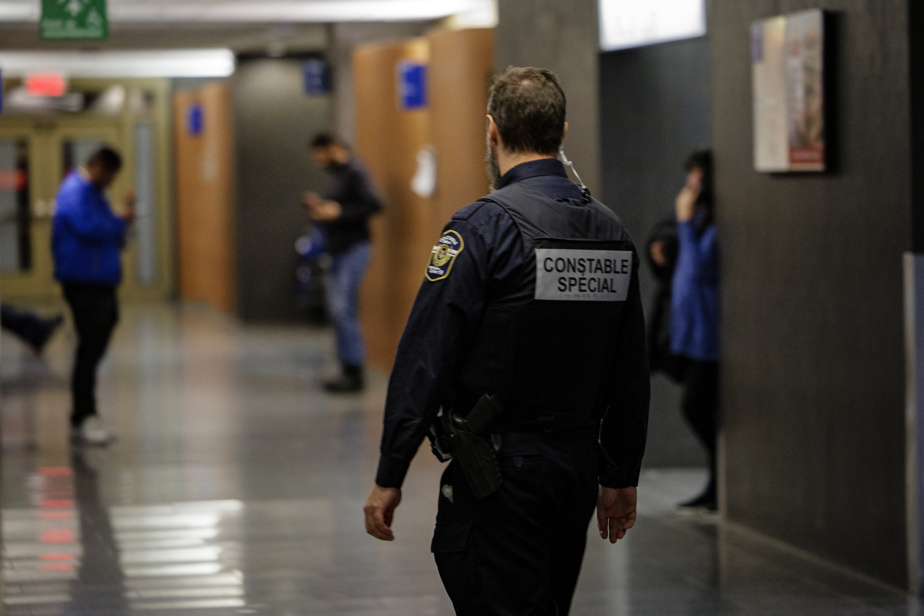(Montreal) The Ministry of Public Security is being scolded by the Administrative Labor Tribunal for its way of managing a dispute with special constables and their union.
The Tribunal ruled in favor of the Syndicat des constables specials du gouvernement du Québec, which alleged that the department, as an employer, had obstructed its activities. “The conduct of the Employer constitutes interference in Union business,” he ruled.
The Court also found in favor of special constables who had been suspended for one day. It cancels their suspension and orders the ministry to pay them, as compensation, the equivalent of their salary and social benefits, of which the measure deprived them, all with interest from the filing of the complaint, in September 2022.
And he also notes that the Ministry also sought to compel them to refrain from participating in trade union activity.
The dispute between the parties stems from the fact that, to make up for a lack of staff, the Ministry of Public Security had asked special constables to take charge of people who had just been sentenced by a judge until their transfer to a detention facility. Previously, this care was provided by correctional officers.
The union considered that this responsibility was not the responsibility of its members and that imposing these tasks on them posed safety problems, both for them and for the public.
“For example, special constables must circulate in the public areas of the courthouse to escort the convicted person to the place where he will be kept. This situation can lead to the risk of altercation with the public and cause unpredictable behavior on the part of the inmate himself or any other person on the premises. Unlike correctional service officers, special constables do not have access to the security facilities of the General Directorate of Correctional Services (secure corridors, cell blocks and satellites) to isolate the incarcerated person until transport to a detention facility. , explains the Court.
The union had filed a collective grievance in December 2021 to contest the addition of these new tasks.
At the same time, the parties had been busy for months negotiating the collective agreement for special constables. And there is a lack of special constables.
In June 2022, the union had given the word of order to its members to no longer take charge of inmates, since this work is more the responsibility of correctional service officers.
The ministry then appealed to the Administrative Labor Tribunal. In July, the latter had refused to rule on the conflict between the parties with regard to the responsibility of the detainees, but he had ordered the union to put an end to its watchword.
And the special constables “comply with this order without delay”, relates the Tribunal.
Despite everything, a few weeks later, the employer had nevertheless suspended special constables for one day, affirming that the concerted refusal of special constables to take charge of newly sentenced persons did not constitute a union activity protected by the Labor Code. , but rather an illegal work slowdown.
The union therefore filed several complaints with the Tribunal.
In its decision, the Tribunal writes in particular that “the conduct of the employer concerning the imposition of sanctions leaves the Tribunal perplexed and convinces that it is a pretext to sanction the union activity of the complainants”.
He adds that “the severity of the sanction is also surprising and suggests that this is a pretext to repress trade union activity”. Among other things, “at no time does he seek to shed light on the events”, criticizes the Tribunal.
Also, “he ignores mitigating factors,” such as the plaintiffs’ clean disciplinary record.
“All these elements therefore cast obvious doubt on the authenticity of the reasons raised by the Employer for suspending the complainants and convince the Tribunal that this is a pretext to sanction their participation in a concerted union activity”, decides the tribunal.
“By individually sanctioning the employees who participated in the union call despite their compliance with the Court’s remedial order, the Employer sought to reduce the influence of the Union and weaken it, which is illegal. “, he concludes.





















